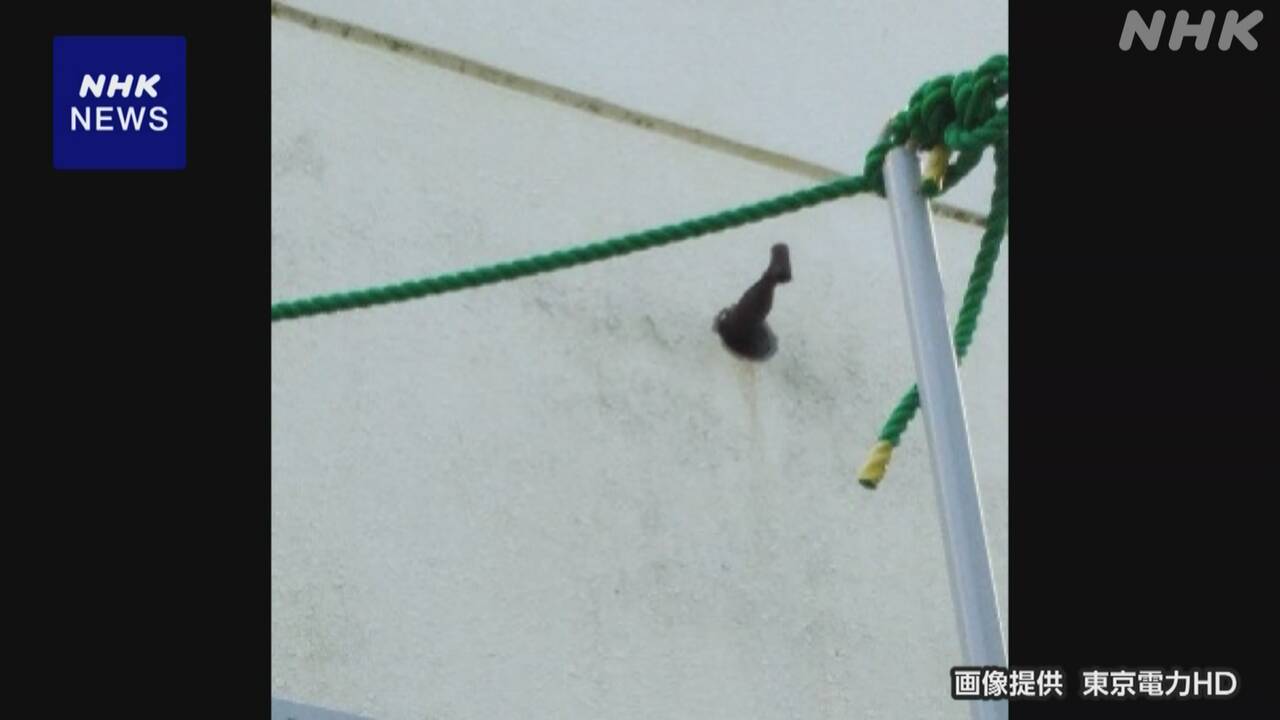On the 7th, there was a problem at the Fukushima Daiichi Nuclear Power Plant where water containing radioactive materials leaked from a contaminated water purification system.The water leaked out because a manual valve that was supposed to be closed was open. TEPCO believes that the worker may have forgotten to close the valve and is investigating the cause.
On the morning of the 7th, while cleaning the pipes at the contaminated water purification system at the Fukushima Daiichi Nuclear Power Plant, water containing radioactive materials leaked from an outdoor exhaust port.
TEPCO estimates that the amount of water that leaked was approximately 5.5 tons, and that it contained approximately 22 billion becquerels of radioactive substances that emit gamma rays, such as cesium-137, far exceeding the national reporting standard of 100 million becquerels.
In addition, during the time period when the leak was discovered, the value of the dust monitor, which measures the concentration of radioactive materials in the atmosphere, briefly rose slightly, but it has now returned to its original value, making it difficult to measure radiation levels. There were also no significant changes in the values measured at the monitoring post or nearby drainage canals.
On the evening of the 8th, TEPCO began collecting soil that appeared to have been soaked with water.
TEPCO also investigated and found that the pipes being cleaned had 16 manually opened and closed valves, and although they were supposed to be opened and then closed again during the work, 10 of these valves were closed. It turned out that it had been left open and water was leaking out.
TEPCO believes that the worker may have forgotten to close the valve and is investigating the cause.
Nuclear Regulation Authority gives verbal instructions to TEPCO
On the 8th, the Nuclear Regulation Authority ordered TEPCO to recover as much leaked water as possible, including water that has seeped into the soil, and to strengthen monitoring of nearby drainage channels, in order to prevent the spread of contamination. This means that he gave verbal instructions.
Fukushima Prefecture applies to TEPCO
On the afternoon of the 8th, Director Hitoshi Watanabe of the Fukushima Prefectural Crisis Management Department called Tatsuya Tanami, director of the TEPCO Fukushima Daiichi Nuclear Power Plant, to the prefectural office and made a complaint in response to a problem in which water containing radioactive materials leaked.
The petition calls the incident "extremely regrettable," and calls for thorough investigation and analysis from various perspectives, including equipment, operations, and management, to prevent recurrence, as well as for prefectural residents to determine whether there is any impact on the environment and future countermeasures. We are asking them to work on disseminating information that is accurate and easy to understand.
Director Tanami said, ``We take this incident very seriously.We will thoroughly analyze the cause and prevent recurrence, and do our best to prevent something like this from happening again.''
China: ``Chronic problems once again demonstrated''
Regarding the discovery of water leaking from the exhaust port of a contaminated water purification system at TEPCO's Fukushima Daiichi Nuclear Power Plant on the 7th, Chinese Ministry of Foreign Affairs Spokesperson Wang Wenbin said at a press conference on the 8th, ``TEPCO... "This has once again demonstrated that Japan has chronic problems, including chaotic and disorganized internal management," he said, calling on Japan to transparently release information and provide responsible explanations.
He went on to say that this "reiterates the need and importance of establishing a long-term and effective international monitoring system."
In response to the release of treated water accumulated at the Fukushima Daiichi Nuclear Power Plant, China continues to suspend imports of Japanese marine products, and the Japanese government continues to call on China to abolish the ban as soon as possible.

